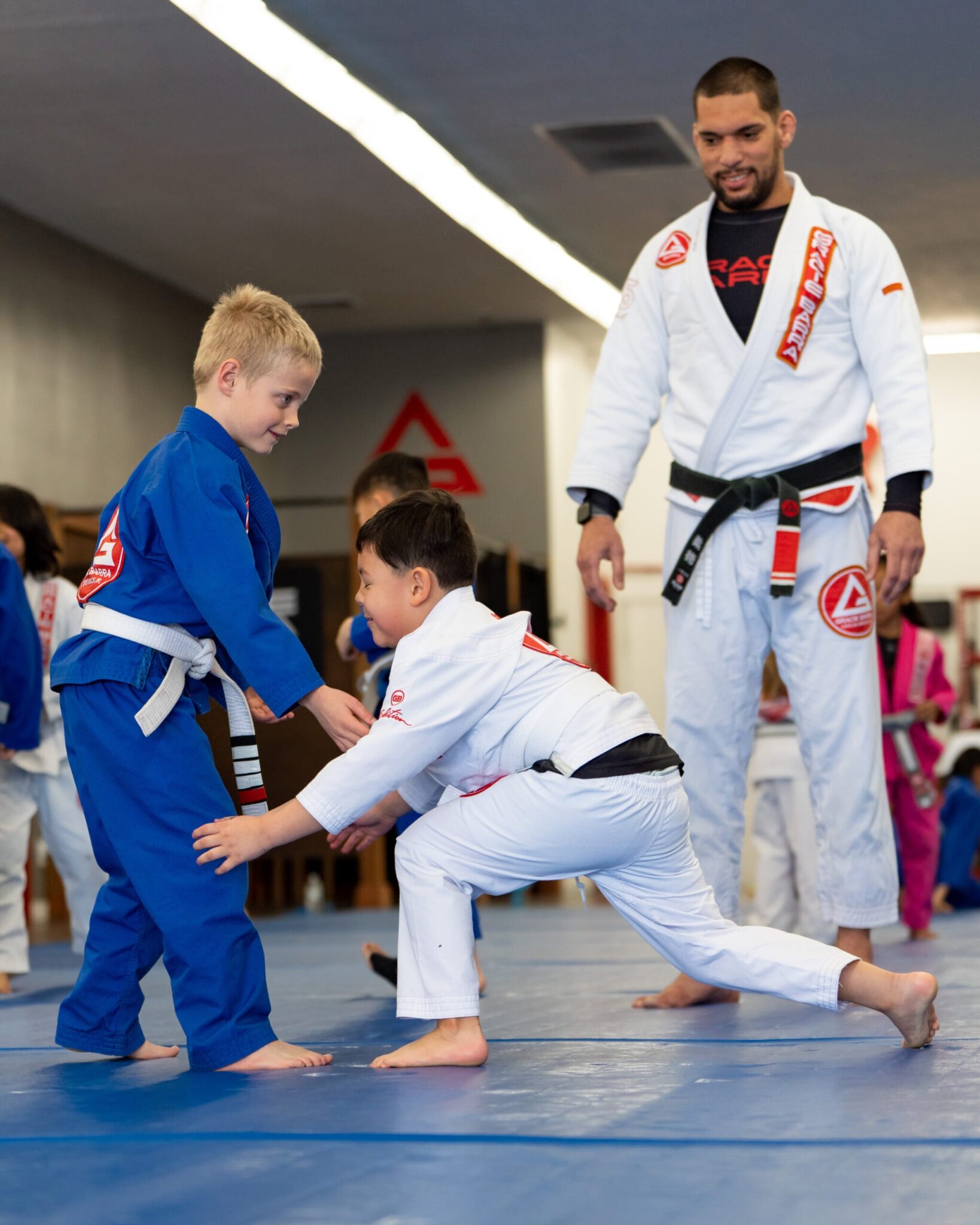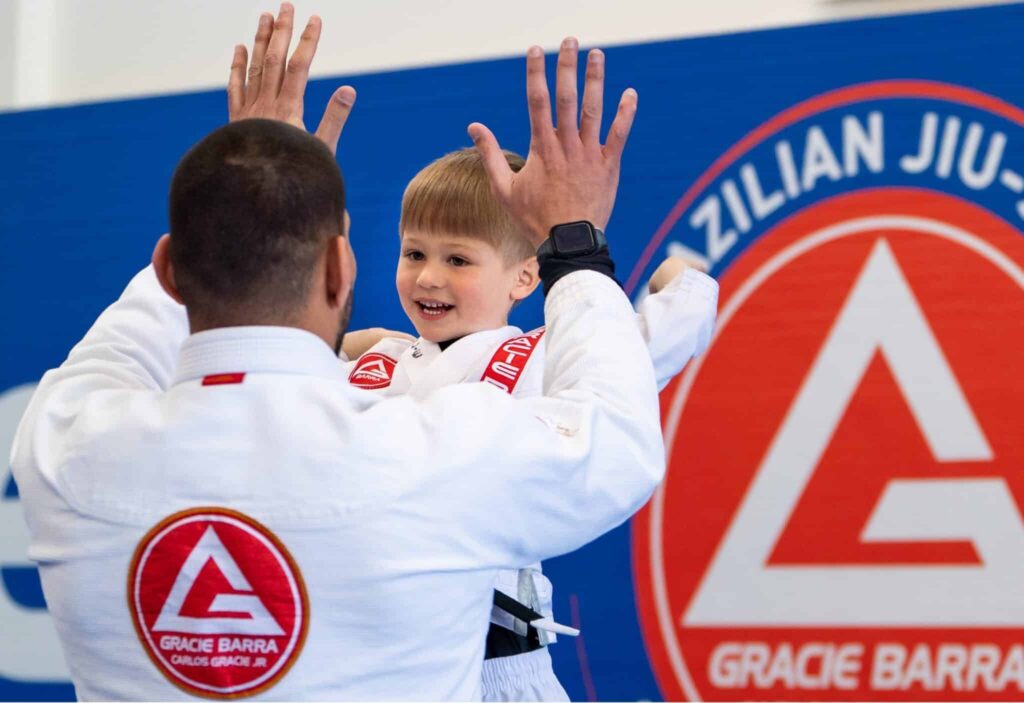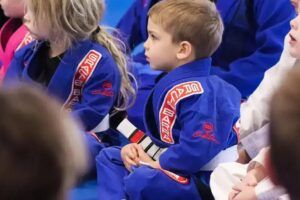Are screens taking over your child’s life? Jiu jitsu for kids offers a dynamic alternative that combats the effects of excessive screen time. From diminished social skills to decreased physical activity, understanding the risks and implications is essential for every parent.
Screen Time and Child Development: How Screens Affect Children and Teens
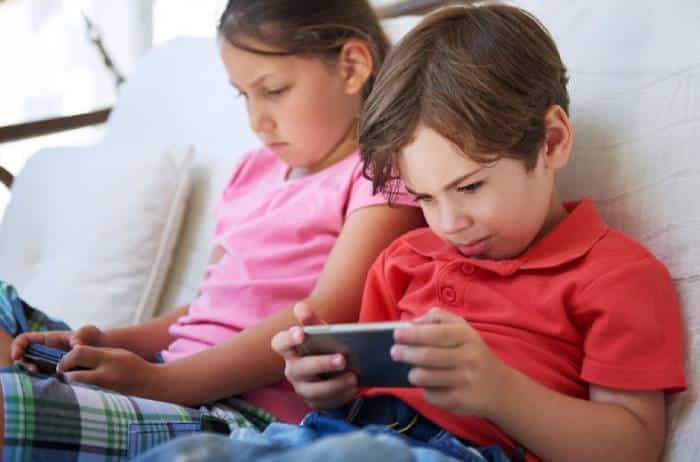
When it comes to screen time and child development, various researches have shown that excessive screen use can have physical impacts on children and teens, such as increased sedentary behavior and decreased physical activity levels. Screens can have cognitive and psychological impacts, with studies linking excessive screen time to poorer attention, language development, and emotional well-being. Let’s delve into how excessive screen time affects children’s and teens’ lives.
Physical Impact
Excessive screen time can negatively impact your child’s and teens’ physical development. Research from the Department of Family Medicine at Jeju National University Hospital in Korea has shown that a sedentary lifestyle, often associated with excessive screen use, can lead to various health issues.
Visual Impairment
One of the most common physical problems is vision impairment. Prolonged screen exposure can strain the eyes and lead to long-term vision problems in children and teens.
Obesity
Professor Lauren Hale from Stony Brook University School of Medicine says, “This rise in obesity is linked to heavier screen use or media use.” Children who spend excessive hours in front of screens are more likely to engage in unhealthy eating habits and have a higher body mass index. She also recommends, “Be sure to incorporate other daily activities, outdoor time, exercise or games or reading.”
Bad Posture
Along with that, prolonged screen use can contribute to posture issues such as rounded shoulders and a forward head position. This can cause musculoskeletal problems and affect your child’s overall physical well-being.
Cognitive and Psychological Impact
You should be aware of the potential cognitive and psychological impact of excessive screen time on your child’s development. Research has shown that children who spend too much time in front of screens may experience cognitive challenges, such as difficulties with problem-solving, attention, and memory.
Excessive screen time can also have a negative impact on emotional well-being, as it may lead to increased levels of anxiety and depression in children. Additionally, it can hinder the development of social skills, as children may spend less time interacting with others face-to-face.
Prolonged screen time can contribute to shorter attention spans and behavioral issues, such as impulsivity and aggression.
Academic and Learning Impacts
To understand the academic and learning impacts of screen time on child development, it’s important for parents and educators to consider the potential effects on cognitive development and educational outcomes. Research from the University of North Dakota has shown that excessive screen time can negatively impact a child’s attention span, information-processing abilities, memory retention, problem-solving skills, and language development.
Excessive screen time has been linked to shorter attention spans in children. With constant exposure to screens, children may struggle to concentrate on tasks that require sustained focus, ultimately hindering their ability to learn and perform well academically.
Not only that, excessive screen time can affect information processing. The constant stimulation from screens can overload a child’s brain, making it difficult for them to process and retain information effectively. This can lead to difficulties in understanding and applying new knowledge.
Memory retention is another area that can be negatively affected by screen overdose. Studies have shown that excessive screen time can impair a child’s ability to store and retrieve information from their memory. This can impact their ability to recall information learned in school and hinder their academic progress.
Problem-solving skills are also at risk when children spend excessive time in front of screens. Screen time often involves passive consumption of content, leaving little room for critical thinking and problem-solving activities. This can limit a child’s ability to develop important problem-solving skills that are essential for academic success.
How Jiu Jitsu for Kids Can Help
Jiu jitsu for kids offers numerous physical benefits, including improved coordination, strength, and flexibility. A systematic review identified 12 articles discussing Brazilian Jiu-Jitsu’s (BJJ) potential social and psychological properties. The research suggests that BJJ also has cognitive and psychological benefits, such as increased discipline, self-confidence, and emotional regulation. Engaging in BJJ may also provide academic and learning advantages by promoting focus, problem-solving skills, and goal-setting abilities.
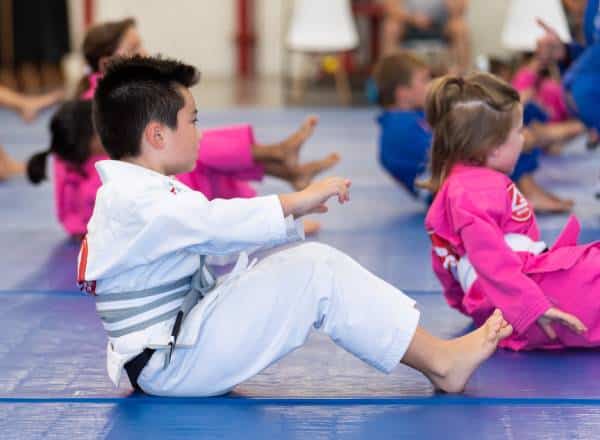
Physical Benefits for Children and Teens Practicing BJJ
By participating in Brazilian Jiu-Jitsu, children and teens can reap various physical benefits that contribute to their overall development. Through grappling and ground fighting techniques, they develop improved coordination, balance, and body awareness.
BJJ also promotes obesity prevention by providing a fun and engaging form of exercise that helps children and teens maintain a healthy weight. It encourages sensory integration as children learn to navigate their bodies in close proximity to others, improving their spatial awareness and enhancing their ability to process sensory information.
Engaging in off-screen activities, such as BJJ, also has a positive impact on sleep patterns, helping children establish a regular sleep routine and promoting better quality sleep.
Cognitive and Psychological Benefits for Children and Teens Practicing Jiu Jitsu for Kids
The main benefits that kids and teens can gain from practicing jiu jitsu for kids include a family environment, a healthy lifestyle, focus, discipline, great exercise, and the opportunity to make friends.
Research has shown that BJJ provides opportunities for social interaction, which can positively impact emotion
al well-being. Engaging in regular BJJ training allows children to form connections with fellow practitioners, fostering a sense of belonging and support.
BJJ requires problem-solving skills, as practitioners constantly strategize and adapt techniques during sparring sessions. This enhances the ability to think critically and make quick decisions under pressure.
Brazilian Jiu-Jitsu training helps improve attention span because kids need to focus on their opponent’s movements and react accordingly. This increased focus can transfer to other areas of life, enhancing productivity and concentration. Additionally, it can lead to significant improvements in memory development as they learn and remember various techniques, positions, and submissions.
Academic and Learning Advantages for Children and Teens Practicing BJJ
While educational apps, online resources, virtual classrooms, digital textbooks, and interactive learning have their advantages, excessive screen time can negatively impact your child’s academic development. It’s known that spending too much time on screens can lead to decreased focus, attention problems, and reduced cognitive abilities.
By engaging in jiu jitsu for kids, your child can experience a range of academic and learning advantages. BJJ enhances problem-solving skills, promotes discipline, improves concentration, and fosters resilience. These skills are transferable to the classroom, allowing your child to excel academically.
Real-Life Insights from Educators and Instructors
Observations from a Middle School Teacher
As a middle school teacher, Julie Elliot has observed significant changes in parenting styles and their impact on student development over the years. She notes that one of the most notable challenges in students’ emotional, social, and intellectual development is the pervasive use of technology.
“While I recognize the advantages that technology offers,” Julie explains, “I’ve witnessed many students becoming overly reliant on their devices, such as cell phones and Chromebooks. This dependency often manifests as resistance to disengage from these tools during instructional time.”
She observes that this reliance can hinder creativity and resilience. “Many students find it increasingly difficult to cope with extended periods of waiting or sustained focus, resulting in a decreased attention span and an aversion to more demanding tasks,” Julie says.
Julie also notes a shift in parenting styles compared to previous generations. “Today, I frequently encounter situations where parents challenge educators over issues such as late work policies or grades. While parents undoubtedly wish to protect their children from struggle, this can inadvertently foster a lack of accountability and problem-solving skills in students,” she adds.
She believes that as educators, it’s essential to prioritize accountability and provide students with a supportive environment where they can learn from their mistakes. Julie sees parallels between these ideas and jiu jitsu for kids, which emphasizes perseverance and accountability.
“In Brazilian Jiu-Jitsu, students learn that success requires hard work and dedication,” Julie points out. “They cannot simply show up and expect to advance without putting in the necessary effort. This experience teaches valuable life skills that translate well beyond the classroom, instilling a sense of responsibility that benefits students in their academic, athletic, and personal endeavors.”
Insights from Professor Seidler Rodrigo
Professor Seidler Rodrigo, head professor of Gracie Barra Utah schools—including Gracie Barra Salt Lake City, Gracie Barra West Jordan, and Gracie Barra Riverton—has also noticed the positive effects of jiu jitsu on children.
“It’s common to hear from parents that their kids are calmer and more engaged at school after starting jiu jitsu,” Prof. Seidler Rodrigo shares. “The discipline and focus they develop on the mats translate into better behavior and attention in the classroom.”
He emphasizes that jiu jitsu for kids not only improves physical fitness but also enhances mental and emotional well-being. “Jiu jitsu teaches children how to face challenges, cope with frustration, and work towards their goals,” Prof. Seidler Rodrigo explains. “These skills are invaluable both in school and in life.”
Prof. Seidler Rodrigo believes that the structured environment of BJJ classes helps children understand the value of respect and perseverance. “In our classes, kids learn that effort leads to progress,” he says. “They see firsthand that dedication and hard work result in tangible achievements, which boosts their self-confidence and motivates them to apply the same principles in other areas.”
Gracie Barra Utah: A Chance for Your Kids and Teens to Get Some Off-Screen Time
“The best thing I did for my daughters was to put them on Gracie Barra!” – Henrique Sebastiann Teixeira Sobrinho
“Enrolling my child was the best decision I’ve made.” – Craig Katayama
“My son LOVES going to class! He has built up so much self-confidence since joining.” – Whitney Vargas
Above, we have some real Google reviews from parents. Your kids and teens will experience a positive transformation at Gracie Barra Utah schools!
Advantages for Your Kids to Join Jiu Jitsu for Kids Today!
One of the key advantages is the development of discipline. Brazilian Jiu-Jitsu training requires students to follow a set of rules and adhere to a structured routine. This helps instill discipline and self-control, which can carry over into other areas of their lives, such as academics, professional, and personal relationships.
Besides discipline, training in Brazilian Jiu-Jitsu at Gracie Barra Utah schools can also boost children’s and teens’ self-confidence. As they progress in their training, they gain a sense of accomplishment and pride in their abilities. This newfound confidence can positively impact their self-esteem and overall well-being, strengthening their social relationships.
The BJJ training sessions at Gracie Barra Utah improve strength, flexibility, and cardiovascular endurance in children and teens. Regular exercise has been shown to have a positive effect on mental health, reducing stress and anxiety in individuals of all ages but especially in children and teens.
Give jiu jitsu for kids a try by booking online a FREE trial class for your children or teens.
Choose the school that is the closest to your place: Gracie Barra Salt Lake City or Gracie Barra West Jordan or Gracie Barra Riverton. We look forward to having your kids train with us!
Frequently Asked Questions
How Does Excessive Screen Time Impact a Child’s Cognitive Development?
Excessive screen time can negatively impact your child’s cognitive development. It may lead to shorter attention spans, delayed language development, impaired problem-solving skills, limited social interaction, and decreased memory retention.
Can Screen Overdose Lead to Behavioral Issues in Children and Teens?
Screen overdose can lead to behavioral issues in children and teens. It impairs social interaction, emotional regulation, academic performance, sleep, and attention span.
Are There Any Long-Term Effects of Screen Overdose on a Child’s Physical Health?
Excessive screen time can have long-term consequences for your physical well-being. A research from the University of North Dakota shows that health risks such as obesity, poor eyesight, and a sedentary lifestyle are associated with prolonged and excessive exposure to screens.
What Are Some Effective Strategies to Reduce Screen Time and Promote Healthier Child Development?
To promote healthier child development, encourage them to participate in engaging activities such as Brazilian Jiu-Jitsu. By getting involved in a physical activity that requires attention and physical effort, children can develop discipline, enhance coordination, and foster social interactions away from screens.
References on the topic:
https://www.ncbi.nlm.nih.gov/pmc/articles/PMC10353947/
https://www.mdpi.com/2414-4088/7/5/52
https://www.researchgate.net/publication/352017776_Brazilian_jiu-jitsu_as_social_and_psychological_therapy_a_systematic_review
https://www.ncbi.nlm.nih.gov/pmc/articles/PMC7700832/
